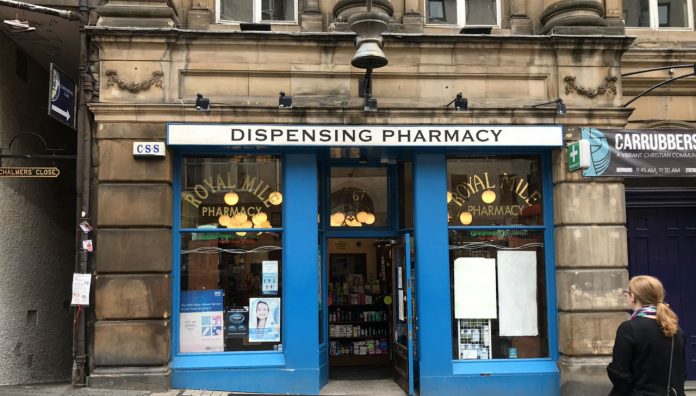A new report indicates the ‘undeniable popularity’ of Scotland’s Minor Ailment Scheme (MAS), as support swells amongst pharmacy groups for its implementation in Australia.
The scheme, implemented by the National Health Service (NHS) in Scotland in 2006, allows children under 16, people aged over 60, people with a medical exemption certificate and those on income support – to seek medical advice and some medications from their pharmacists. Ailments covered by the scheme include general aches and pains, allergies, eczema and fungal infections.1
Following the scheme’s success, it was announced in September last year that the program will be expanding the offering to ‘everyone across Scotland’.2
The report, commissioned by Community Pharmacy Scotland (CPS), has found that 87% of patients gave their experience with the MAS a 10 out of 10 rating, and the overwhelming majority rated their experience of consultations as ‘excellent.’3
The report also indicated that the MAS was successful in alleviating the burden on GPs and emergency services – with 59% of respondents reporting that they would have gone to their GP if they had not had access to the service. Others said that they would have either self-medicated (57%), or sought advice from the NHS 24 hour hotline (11%), online (10%), friends and family (10%) or emergency services (2.1%)
A thematic analysis of responses revealed, among other things, that the scheme was effective in making healthcare more accessible.
‘Those with, or caring for persons with, chronic conditions, neurodevelopmental disorders, and other limiting conditions recognised their community pharmacies as easier and more comfortable to access,’ the report reads. ‘The rationale for this focused on the short waiting times, the relative ease of visiting for a consultation, quieter environments, and a less stressful and familiar experience.’4
Vice President of the Pharmaceutical Society of Australia, Dr Shane Jackson, said that the positive results were unsurprising.
‘I’m pleased that some positive responses have come out of that report,’ Dr Jackson told Australian Pharmacist.
The practise of pharmacists treating patient’s symptoms when possible, and referring them on to other healthcare professionals where necessary has been, ‘happening for a long period of time and it’s extremely established as an activity within the pharmacy world,’ he said.
But despite pharmacist’s existing skills in this area, and the established practise of offering some of the services outlined in the MAS, Dr Jackson said that there is a pressing need for a formalised system in Australia.
‘I think what we need in this country is a coordinated program that we clearly evaluate, where we identify what those services are from a pharmacy perspective and how well they fit in. We also need to ensure that we have robust referral pathways in place,’ he said.
‘There’s no doubt that there’s a need for a widespread program for pharmacies in the Australian context.’
The success in Scotland, Dr Jackson said, provides further evidence that a similar scheme would be successful in Australia and is sorely needed by both pharmacists and patients.
For information about PSA’s Self Care Program, refer here: https://www.psa.org.au/programs/self-care/
References:
1.The NHS Minor Ailment Service at your local pharmacy. 2017. At: https://www.gov.scot/publications/nhs-minor-ailment-service-local-pharmacy/
2. Clews G. Scottish government announce national minor ailments service for all. The Pharmaceutical Journal 2018. Epub 2018 September 5. At: https://www.pharmaceutical-journal.com/news-and-analysis/news/scottish-government-announces-national-minor-ailments-service-for-all/20205404.article?firstPass=false
3-4. Boag L, Stewart D, et al. Community pharmacy Scotland: A mixed methods national evaluation of the experiences of service users of the minor ailment service. Epub 2019 January 9. At: http://www.cps.scot/media/2507/cps-mas-report.pdf



 Professor Margie Danchin[/caption]
Professor Margie Danchin[/caption]

 Dr Peter Tenni[/caption]
Dr Peter Tenni[/caption]
 How should we deprescribe gabapentinoids, according to the Maudsley Deprescribing Guidelines[/caption]
How should we deprescribe gabapentinoids, according to the Maudsley Deprescribing Guidelines[/caption]



 Pharmacists have always prescribed, but they have the potential to prescribe much more
Pharmacists have always prescribed, but they have the potential to prescribe much more




